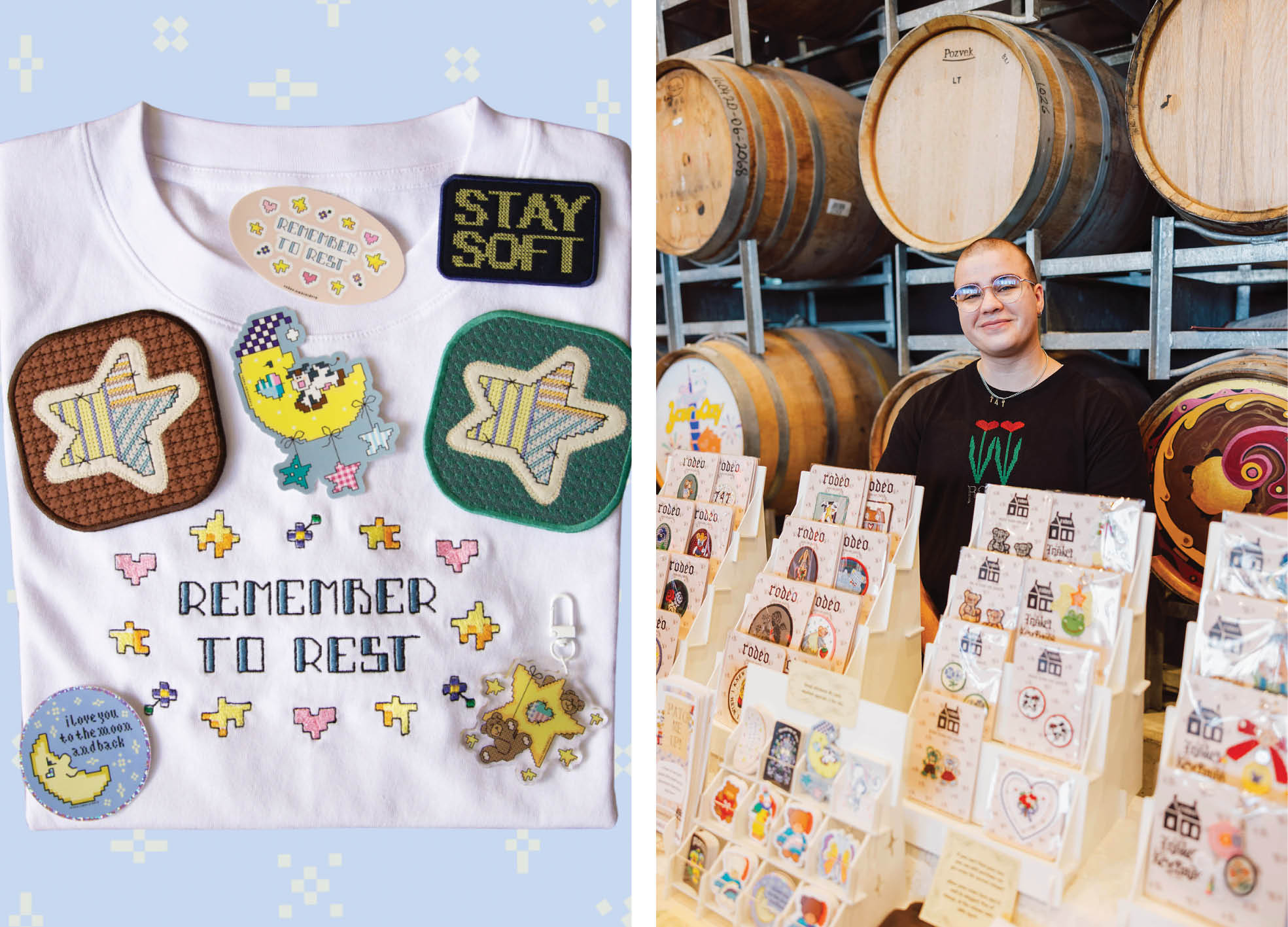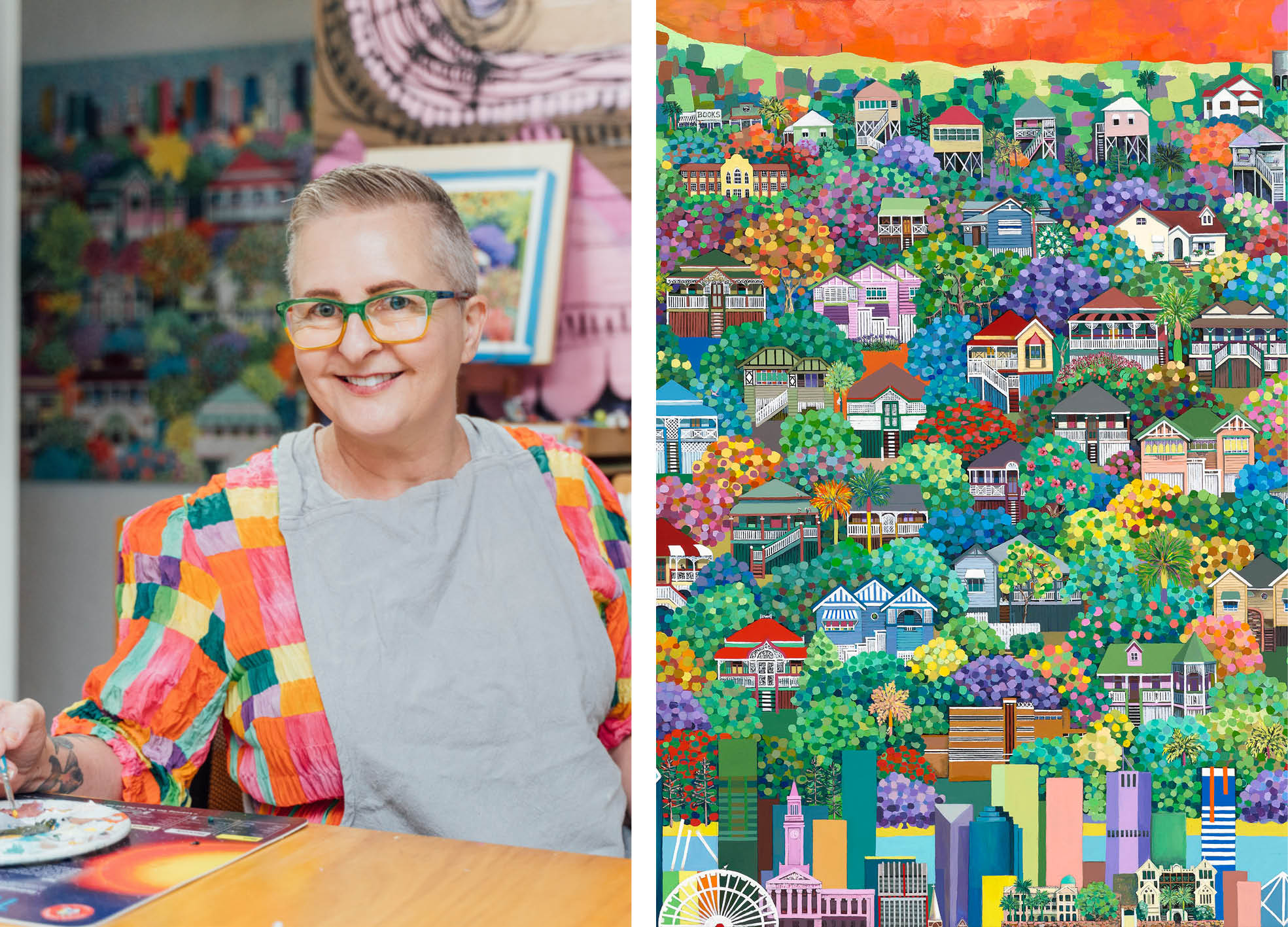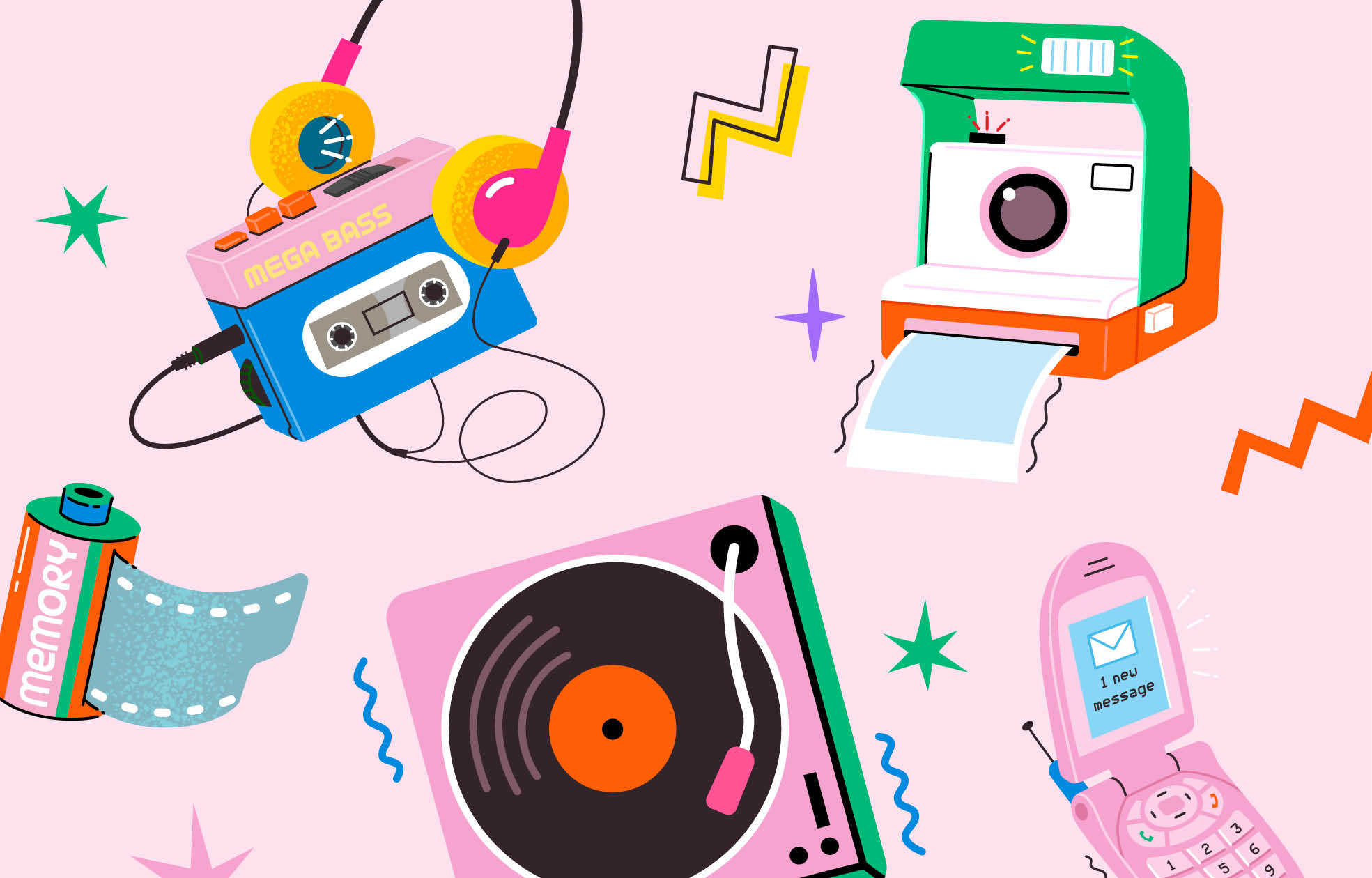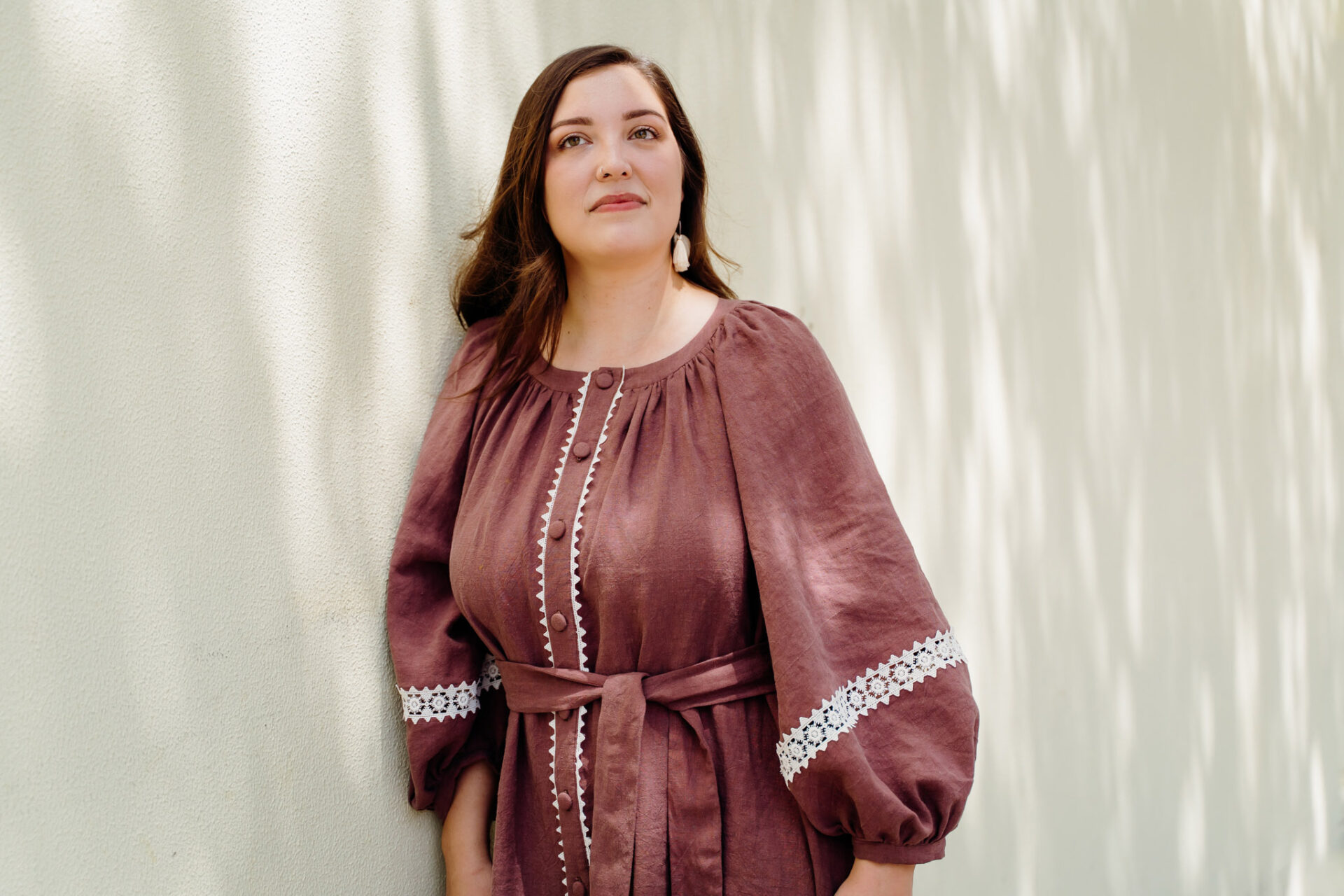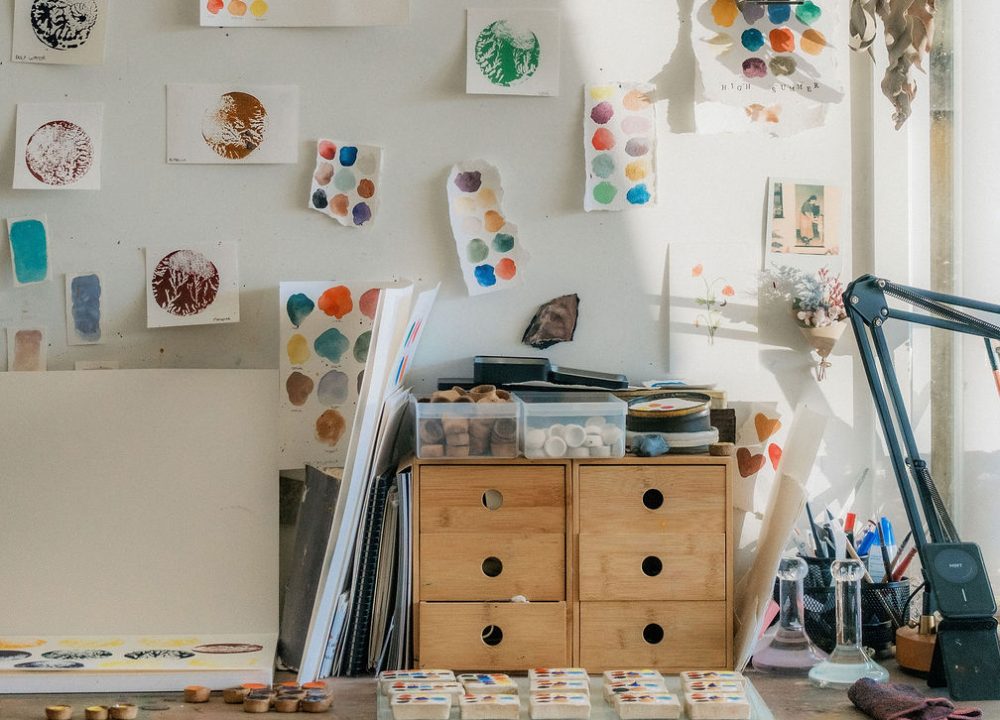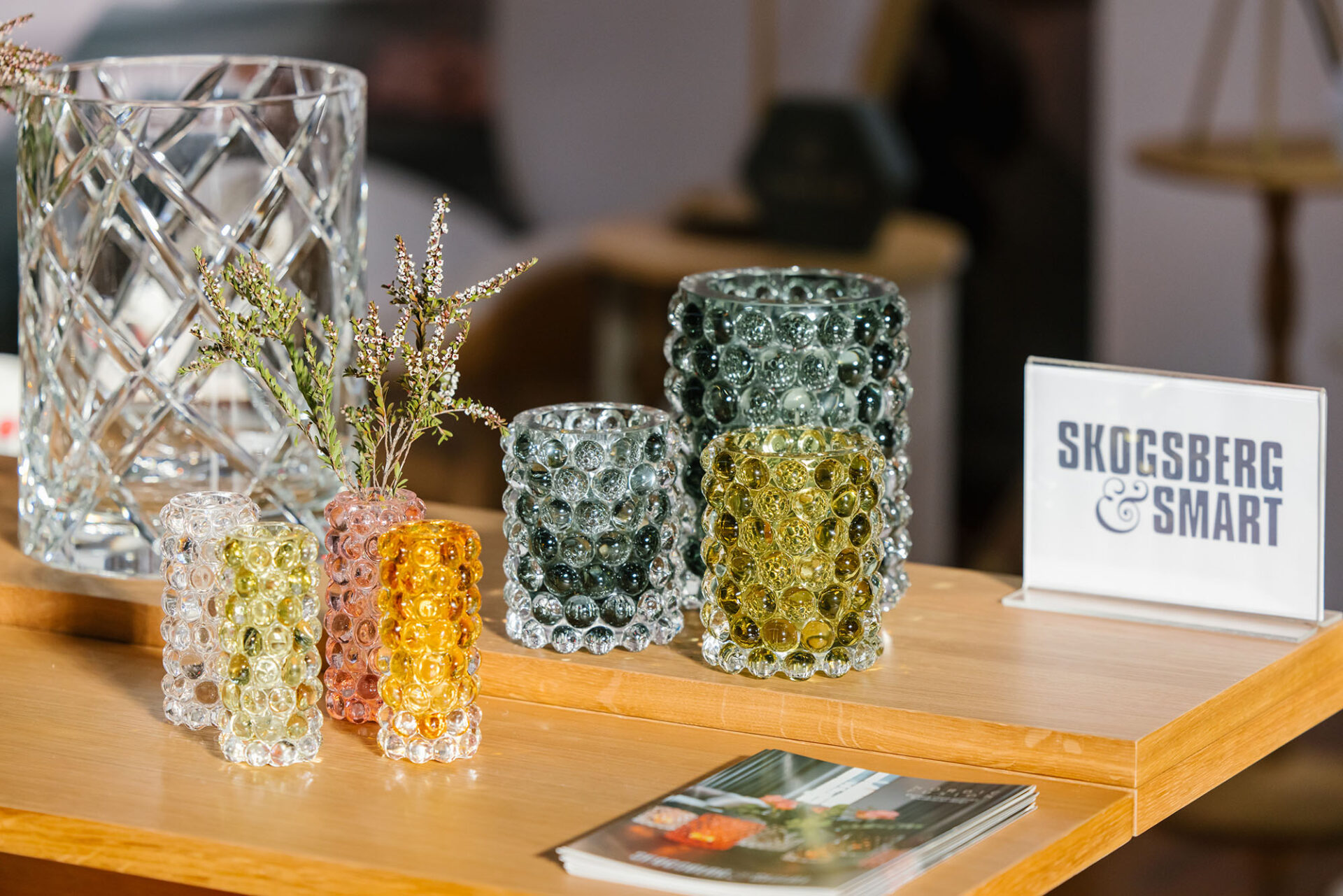Makers From The Great Artist Market: When Can You Call Yourself An Artist?
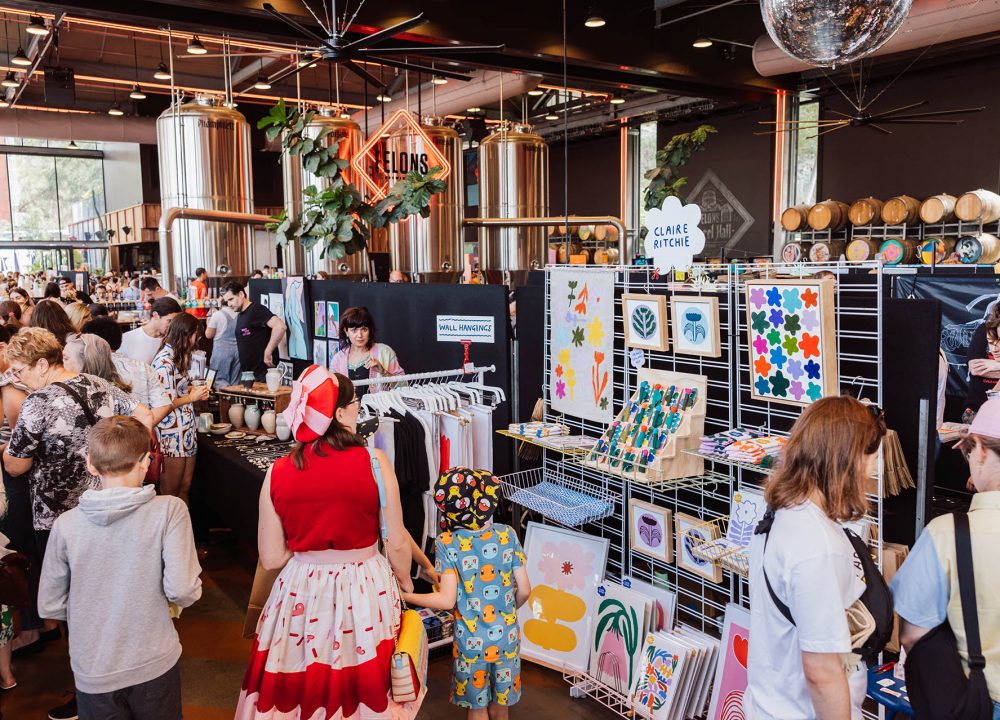
- Words by Peppermint
Most creatives know the feeling well. The self-doubt, the lack of confidence, the little voice that whispers – “can you really call yourself an artist?” We think it’s time to reply to that question with a resounding YES. We asked five artists from The Great Artist Market their thoughts on imposter syndrome and when they were finally able to call themselves an artist.
Created by Felons Brewing Co, The Great Artist Market is a community highlight that connects local artists and makers with friendly faces in the local area. As the official media partner, we’re very excited to be joining the next event on Saturday June 28th at Felon’s Barrel Hall! Showcasing more than 70 local artists, TGAM is a market full of bespoke and mindfully made items. Free entry, family-friendly, with delicious food, workshops and entertainment throughout the day, TGAM welcomes all walks of life to celebrate and empower the local creative community. See you there!
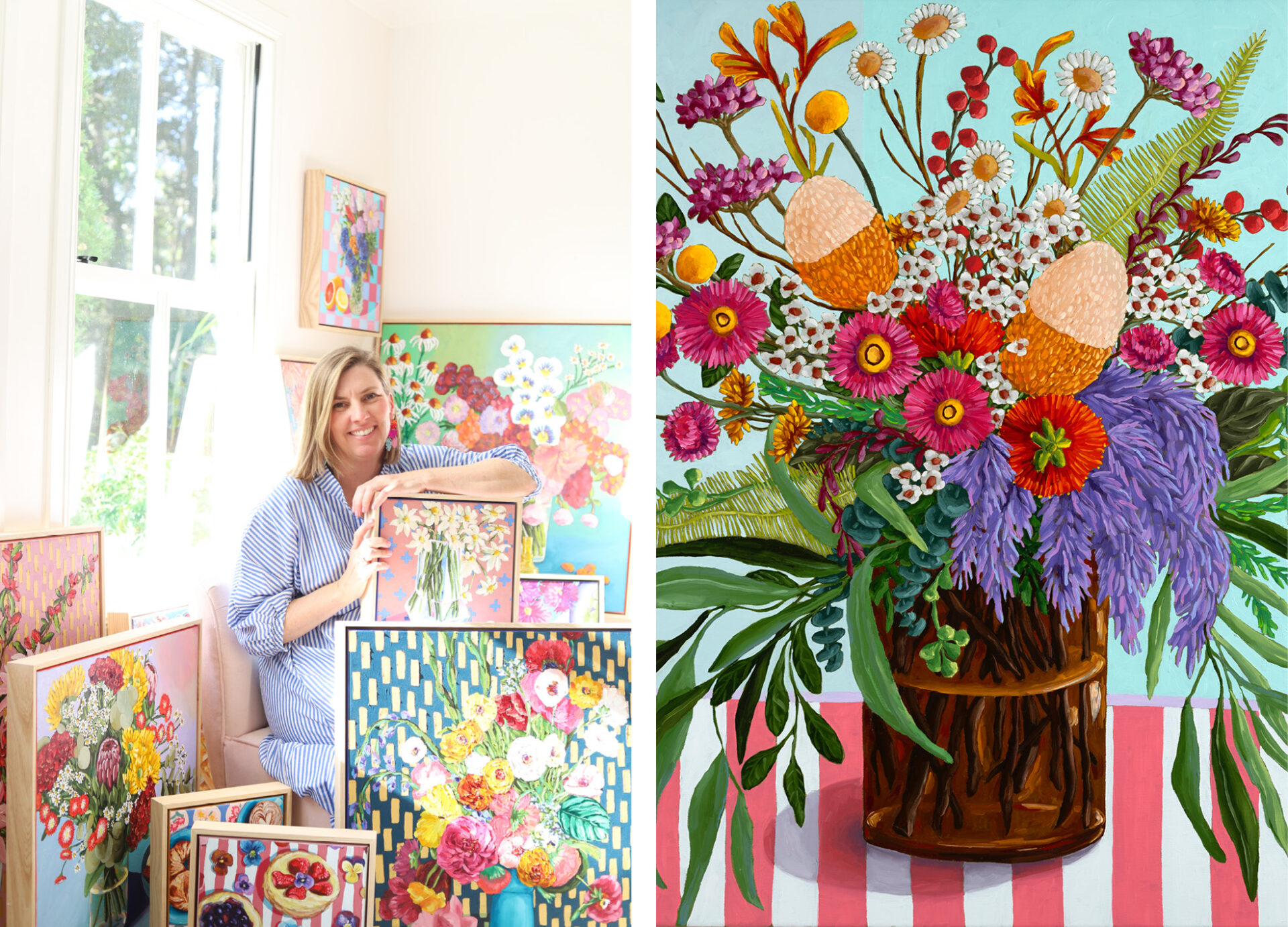
Kate Quinn
Was there a defining moment when you felt you could truly call yourself an artist?
In 2020, I had only just started an art instagram page (which felt very scary at the time), and was painting as a hobby. I was starting to tentatively put my art out into the world a little bit, but I definitely would not have identified as an artist. On a whim, and without giving it much thought because I was certain I wouldn’t be selected, I entered the ‘Jumbled Art Superstar’ competition, and some weeks later, to my utter disbelief and shock, received a call to say that I had won. They wanted to buy some of my work and overnight, my hobby turned into a business. The next morning I hurriedly opened a business bank account, registered an ABN, and started building my website! It was an absolute sliding doors moment.
What helped you take that stance?
After I won the comp, Jumbled wanted to sell my work in their gallery space, and in time that led to other galleries, art shows and stores reaching out too. Despite still not feeling like an artist (at that time I was still working part time as a social worker, my ‘proper’ career), having interest from galleries helped me start to feel more comfortable calling myself an artist and to identify as an artist in a professional sense.
Does external validation – whether from customers, friends or mentors – affect your confidence in calling yourself an artist?
‘Rational me’ knows that anyone who creates any type of art is an artist… but ‘anxious me’ worries that my art isn’t good enough/I’m not fine art trained/insert-other-worry-thought. So I suppose, having external validation from others does help remind me of the rational knowledge that I am an artist, regardless of sales, prizes, wins or representation. If you make art, you’re an artist… that’s that.
Have you ever struggled with imposter syndrome, and if so, how do you deal with it?
Yes! Of course! I’m sure all artists feel a lot of imposter syndrome and I don’t think that ever leaves you, regardless of where you are in your career. Showing something creative you’ve made yourself to others can make you feel very exposed and vulnerable. Artists, musicians and actors would all feel this. Artists are often their own worst critic and are the first person to find flaws in their own work, which leads to a lot of imposter syndrome feelings. I have found over time the best way to manage this is to practise putting my work into the world, allowing it to be seen (on social media, in exhibitions, galleries and stores), and reminding myself that not everyone will love my art, and that’s completely ok. I also find it helps to make connections with other artists and get support from others within the creative community. I have met so many beautiful artistic people on instagram and although managing social media is a pain at times, it is also a great place to make meaningful connections with other creatives.
What advice would you give to someone who is hesitant to embrace the title of ‘artist’?
Remind yourself of these things:
If you make art, you are an artist.
You don’t have to sell your art to be an artist. Just making art is enough.
You’re not in competition with other artists – they are your colleagues, mentors and cheerleaders.
There’s space for all of us, with plenty of customers to go around, so make what you love to make and the right audience will find you.
Art is subjective, some people will love your work and some will hate it, and that’s totally ok!
Practise sharing your art with the world, do it in small steps if it feels scary at first.
Never forget you started making art in the first place because you love the process of creating… and that creative process is more important than the end product.
Kaleb Piggott – Rodeo Embroidery
Was there a defining moment when you felt you could truly call yourself an artist?
I think the moment came when I realised I had something good. And I know that sounds a little vague or conceited but when you know you’re doing something unique and special, I think those moments of reflection can bring so much validity. Machine embroidery isn’t commonly used as a medium, so I’m incredibly grateful to have found something that allows me to create and express myself in a way that I deeply love. I’m constantly inspired to push the creative limits – not only myself, but the capabilities of my machine, and I think the combination of those things helped me feel confident enough to call myself an artist.
What helped you take that stance?
By taking myself seriously, and that’s something I really believed from the beginning. My Mum always said “if you’re gonna do it, do it properly” and she’s right! If you’re going to pursue a creative endeavour, or any independent endeavour for that matter, you need to do it properly because how do you expect others to take you seriously if you don’t? I know that’s easier said than done but make sure you don’t sell yourself short!
Does external validation – whether from customers, friends or mentors – affect your confidence in calling yourself an artist?
Of course! I feel like people called my work art before I did. Before then I viewed my creative endeavours as hobbies or crafts because I felt like it discredited true artists. But I think that’s the beauty of art and artistry is the spectrum in which it exists in – you can create as a hobby and be considered an artist, you can work on an installation for 6 months and be considered an artist. Sharing my work with friends, family, strangers on the internet all helped me see the worth and the good in my creations and myself. It might be scary to do but sharing and feedback isn’t something to be afraid of.
Have you ever struggled with imposter syndrome, and if so, how do you deal with it?
Oh absolutely, it’s a byproduct of ego – you can’t be willing to put your creative endeavours out there without experiencing it in some capacity. I like to remember that my work, in its entirety, is mine. My progress, my failures, my success, it’s all mine and comparing that to others and their work is unfair. You never know what someone else has gone through to get to where they are now so I think it’s important to focus on what you know, where you’re going and how you got there. Recognise those emotions of self-consciousness and self-doubt and remember all those late nights and scribbled ideas that turned into work . I think that’s what matters. <3
What advice would you give to someone who is hesitant to embrace the title of ‘artist’?
Keep going! Share your work! Attend markets and exhibitions! Find your community! Just keep working and moving forward, in whatever capacity that looks like to you, because before you know it you’ll have a collection of works that will make you proud to call yourself an artist.
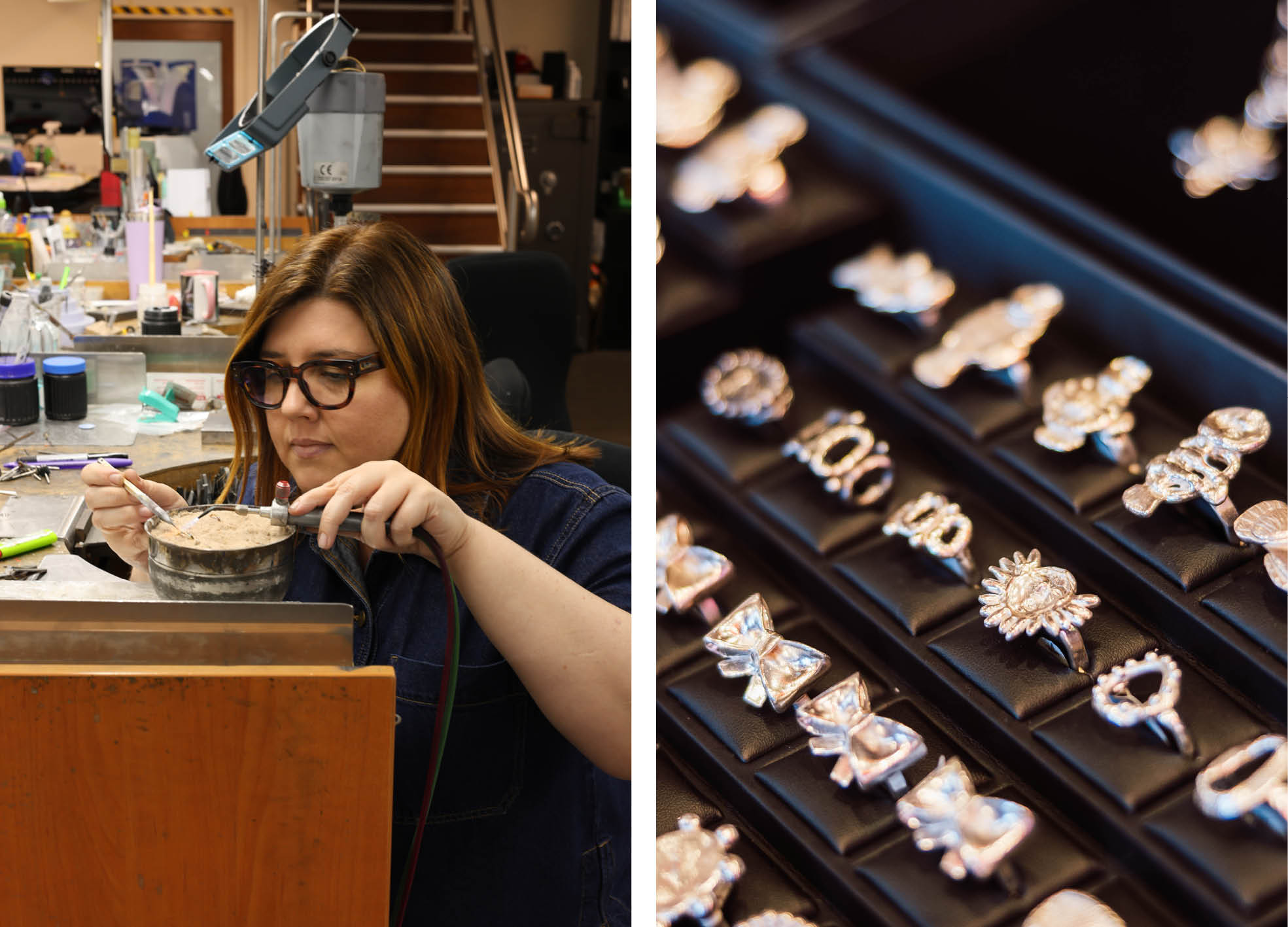
Katie Bourchier
Was there a defining moment when you felt you could truly call yourself an artist?
Calling myself an artist comes from a combination of mindset and output. I wouldn’t say there’s been a single defining moment, but I do remember looking at all the work I had made for an exhibition a few years ago and being amazed at how many pieces I had actually created. I feel like I can take on the archetype and identity of ‘artist’ because I engage in the process of making often.
Being an artist is for anyone who loves to create and is dedicated to curiosity, play or experimentation within their practice.
What helped you take that stance?
I think it came from giving myself permission to make bad art. Lowering the stakes and dedicating time to creating something almost every day has helped me make sense of the world, process my feelings, or find joy in something as simple as materials.
Does external validation – whether from customers, friends, or mentors – affect your confidence in calling yourself an artist?
I think it’s impossible not to be affected by external validation; especially when I sell my work, hoping they’ll be loved and purchased by others. In a way, validation is a form of currency.
I feel so lucky to be surrounded by the best, most fun and kind collectors, friends, and mentors. Making friends and connections in the art community has been vital. These people have helped me become even more of myself as an artist and I’ve grown more confident because of the people I’m surrounded by.
Have you ever struggled with imposter syndrome, and if so, how do you deal with it?
Yes, I struggle with imposter syndrome all the time. The best way for me to get through it is to make work. Make lots of work, and just drown that voice out. It doesn’t even have to be within my main practice of jewellery and small objects; right now, I’m enjoying collage and ink on paper. Just getting into the flow of making even if it feels crunchy to start, helps.
What advice would you give to someone who is hesitant to embrace the title of ‘artist’?
Don’t wait for permission; grab it with both hands. If you make art, you’re an artist. I think if you’re hesitating about giving yourself the title of artist; you should get in and immerse yourself in your practice. Make everything that’s in your head, make things when you feel like it and make things when you don’t really feel like it. Make bad art, make ugly and strange things that would feel vulnerable in showing to people, even if you keep these to yourself. Then give yourself the gift of the title of artist as a reward for bringing these pieces to life.
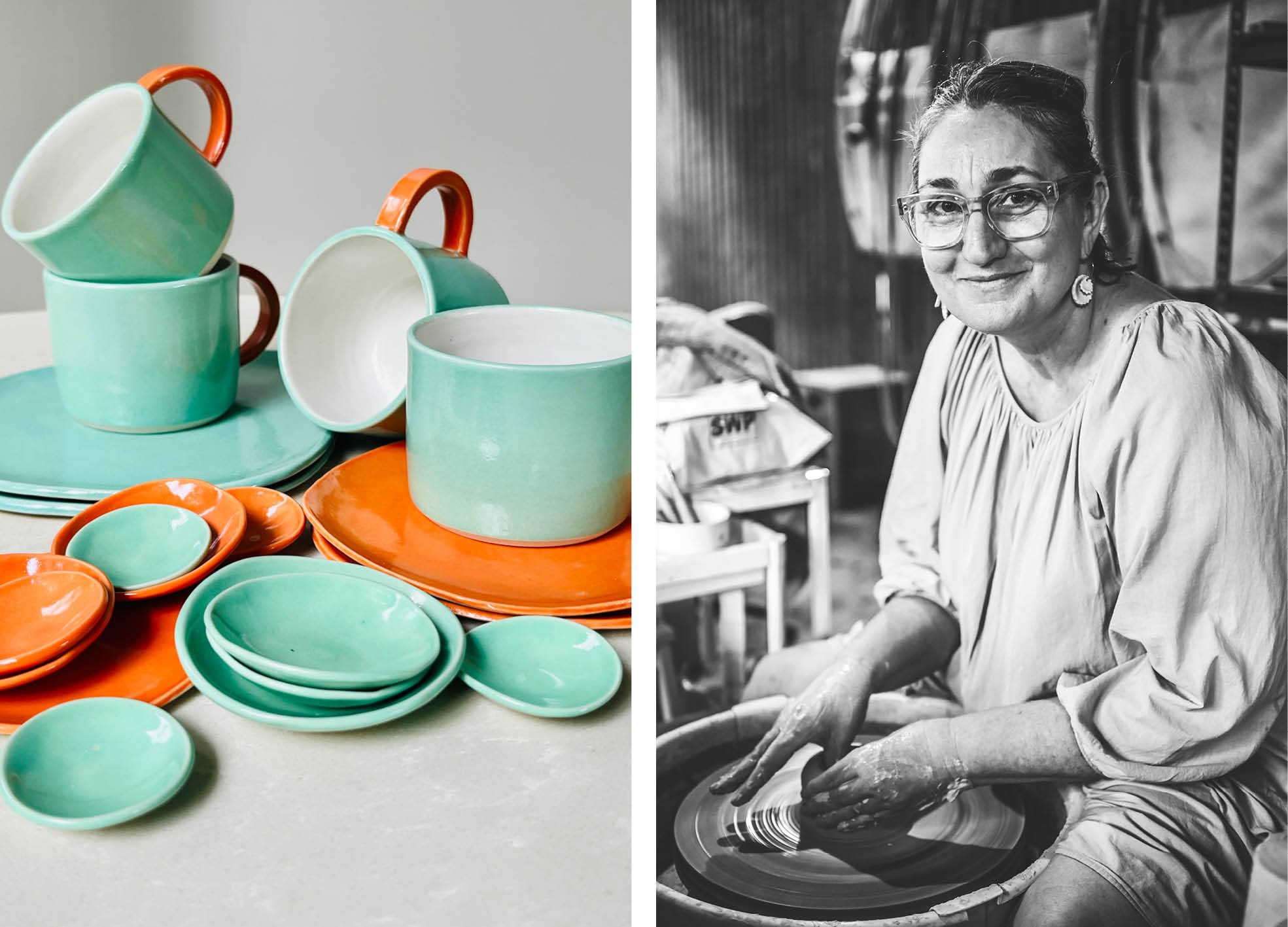
Bec English Ceramics
Was there a defining moment when you felt you could truly call yourself an artist?
I’ve always had a deep emotional response to visual stimuli and from an early age viewed the world through an artist’s lens. My first love was fashion, but after studying fine art with a major in painting, I found myself increasingly drawn to sculptural work with a functional dimension. I’m inspired by forms that combine aesthetics with purpose – whether in fashion, jewellery, interior design, or architecture. Ceramics became the perfect medium to explore this intersection. The defining moment came when I realised that my true passion lay in sculptural form. That understanding allowed me to see my ceramic practice not just as craft, but as a genuine art-form – and see myself as an artist.
What helped you take that stance?
When I first saw my work as a body of work and realised that I have a clear aesthetic. Up until that point I felt like my work was a collection of disparate pieces that had no relation to each other and that I would struggle to find ‘my voice’. Turns out it was there all along!
Does external validation – whether from customers, friends or mentors – affect your confidence in calling yourself an artist?
External validation does play a role – having an audience and receiving feedback from customers and friends is meaningful to me. But at its core, my practice is driven by a personal need to create objects that are aesthetically pleasing and elevate everyday experiences. I’m especially inspired by how a simple, beautiful object – like a handmade vessel – can transform a daily ritual into something more intentional and joyful. Choosing a mug for your morning coffee can be a deeply personal act, one that reflects your mood and enhances your day. For me, it feels like sharing a moment with a different ‘friend’ each day. Hearing that my customers feel that same connection is incredibly affirming. I’m also fortunate to be part of Brisbane’s supportive artistic community, where collaboration is valued over competition. That sense of belonging and shared purpose offers a powerful form of validation in itself.
Have you ever struggled with imposter syndrome, and if so, how do you deal with it?
Imposter syndrome often shows up for me when I’m confronted with labels or titles, like being called an ‘artist’. Even responding to these questions has made me reflect on whether I truly embody that word. Over time, though, my understanding of what it means to be an artist has evolved. The turning point in overcoming imposter syndrome has been learning to trust that my work is a genuine expression of my voice. When I stay connected to that authenticity and stop comparing myself to others, the doubts quiet down – and I can fully stand in the identity of being an artist on my own terms.
What advice would you give to someone who is hesitant to embrace the title of ‘artist’?
Choose the title that feels true to your practice – there’s no single definition you have to fit. The word artist carries a lot of social and historical weight, which can make it hard to claim. But we often underestimate our own value. One helpful exercise is to flip the question: instead of asking “Am I really an artist?”, ask yourself “Why wouldn’t I be?” That shift in perspective can reveal just how much you already embody the title, even if you haven’t fully embraced it yet.
Debra Hood
Was there a defining moment when you felt you could truly call yourself an artist?
For me, that moment came in 1986 when I sold my first painting to a stranger. This individual chose to invest their hard-earned money in my work, driven by a deep connection to what they saw. The painting was titled “The Note,” and it was not a vibrant, cheerful piece; rather, it explored dark themes of despair and personal trauma. At just 22 years old, the sale of this painting was a powerful affirmation that I was not alone in facing the aftermath of ongoing sexual abuse. In that moment, someone validated my worth as a woman and a survivor, solidifying my identity as an artist and my purpose to share these profound experiences through my art.
What helped you take that stance?
I don’t think choosing to be an artist was ever a conscious decision for me; it has always been an integral part of who I am. As a teenager in school, I discovered that art was my way of expressing the rage, anger, horror, and sadness I felt inside. Art has always served as a cathartic outlet, and it’s wonderful that art therapy is now recognised as a vital component of trauma healing.
Does external validation – whether from customers, friends or mentors – affect your confidence in calling yourself an artist?
I’m now 62, in my third and final semester of life and still cringe that I need some sort of external validation! However, with or without external validation, I’m giving this passion of mine a pretty good nudge after 45 years of work. I think I am finally trusting myself to be able to take up space and have a seat at any table.
Have you ever struggled with imposter syndrome, and if so, how do you deal with it?
I have spent decades battling the huge, ugly Imposter Monster. Now, it has transformed into a small, fluffy toy that seems kind of cute. When it pops out to play occasionally, I just roll my eyes, tickle its tummy, and toss it back into the box by its ear, so it knows who’s boss! The lid doesn’t need to be closed these days, as it doesn’t escape often. I won’t throw it away because it keeps me humble and reminds me not to fear my reality.
What advice would you give to someone who is hesitant to embrace the title of ‘artist’?
Embrace the title of artist with confidence – it’s a courageous and empowering step! There’s no reason to fear it, and no one can define your identity but you. Celebrate who you are without needing to explain yourself to anyone.
PEPPERMINT IS PROUD TO BE THE MEDIA PARTNER FOR OUR GOOD FRIENDS AT THE GREAT ARTIST MARKET. THE NEXT MARKET WILL BE HELD ON SATURDAY, 28 JUNE AT FELONS BARREL HALL IN BRISBANE CITY.
JOIN OUR MAILING LIST
Brighten up your inbox with our not-too-frequent emails featuring Peppermint-related news, events, competitions and more!
explore
More articles
Look, I don’t want to make anyone panic but IT’S DECEMBER!!! If you’re planning to give homemade gifts, you’re going to have to act fast. …
Hang out with us on Instagram
🌻 The Paddington 🌻
This is a much-loved staple, created for Issue 50 in 2021. We love seeing the #PeppermintPaddingtonTop continually popping up in our feeds!
How stunning is our model Elon MelaninGoddessEfon – she told us it was one of the first times she had been asked to come to a shoot with her natural hair. 🌻
We worked with South African patternmaker Sarah Steenkamp of @FrenchNavyNow_ to create this wardrobe essential – the perfect puff-sleeve blouse. Raglan sleeves make it the ultimate beginner sew, plus the gorgeous back buttons let you add your own personal twist.
Pattern via the link in bio! 🪡
Photos: @KelleySheenan
Fabric: @Spoonflower
Model: MelaninGoddessEfon

“In the 1940’s, Norwegians made and wore red pointed hats with a tassel as a form of visual protest against Nazi occupation of their country. Within two years, the Nazis made these protest hats illegal and punishable by law to wear, make, or distribute. As purveyors of traditional craft, we felt it appropriate to revisit this design.”
Crafters have often been at the heart of many protest movements, often serving as a powerful means of political expression. @NeedleAndSkein, a yarn store in Minnesota, are helping to mobilise the craftivists of the world with a ‘Melt The Ice’ knitting pattern created by @Yarn_Cult (with a crochet pattern too), as a way of peaceful protest.
The proceeds from the $5 pattern will go to local immigrant aid organisations – or you can donate without buying the pattern.
Raise those needles, folks – art and craft can change the world. 🧶
Link in bio for the pattern.
Images: @Gather_Fiber @NeedleAndSkein @a2ina2 @KyraGiggles Sandi.204 @WhatTracyMakes AllieKnitsAway Auntabwi2
#MeltTheIce #Craftivism #Knitting #CraftForChange

TWO WEEKS TO GO! 🤩
"The most important shift is moving from volume-led buying to value-led curation – choosing fewer, better products with strong ethics, considered production and meaningful stories. Retailers have real influence here: what you buy signals what you stand for. At Life Instyle, this means using the event to discover and invest in small-scale, planet-considerate brands that align with your values and your customer’s conscience. Consumers don’t need more things; they need better things, and retailers play a key role in selecting, contextualising, and championing why those products matter."
Only two more weeks until @Life_Instyle – Australia`s leading boutique retail trade show. If you own a store, don`t miss this event! Connect with designers, source exquisite – and mindful – products, and see firsthand why this is Australia’s go-to trade show for creatives and retailers alike. And it`s free! ✨️
Life Instyle – Sydney/Eora Country
14-17 February 2026
ICC, Darling Harbour
Photos: @Samsette
#LifeInstyle #SustainableShopping #SustainableShop #RetailTradeEvent

Calling all sewists! 📞
Have you made the Peppermint Waratah Wrap Dress yet? Call *1800 I NEED THIS NOW to get making!
This gorgeous green number was modelled (and made) by the fabulous Lisa of @Tricky.Pockets 🙌🏼
If you need a nudge, @ePrintOnline are offering Peppermint sewists a huge 🌟 30% off ALL A0 printing 🌟 when you purchase the Special Release Waratah Wrap Dress pattern – how generous is that?!
Head to the link in bio now 📞
*Not a real number in case that wasn`t clear 😂
#PeppermintWaratahWrapDress #PeppermintPatterns #SewingPattern #WrapDress #WrapDressPattern

8 Things to Know About January 26 - from @ClothingTheGaps:
Before you celebrate, take the time to learn the truth. January 26 is not a day of unity it’s a Day of Mourning and Survival for Aboriginal and Torres Strait Islander peoples.
It marks the beginning of invasion, dispossession, and ongoing colonial violence. It’s time for truth-telling, not whitewashed history.
Stand in solidarity. Learn. Reflect. Act.
✊🏽 Blog written by Yorta Yorta woman Taneshia Atkinson.
🔗 Link in bio of @ClothingTheGaps to read the full blog
#ChangeTheDate #InvasionDay #SurvivalDay #AlwaysWasAlwaysWillBe #ClothingTheGaps

As the world careens towards AI seeping into our feeds, finds and even friend-zones, it`s becoming increasingly hard to ignore.
We just wanted to say that here at Peppermint, we are choosing to not print or publish AI-generated art, photos, words, videos or content.
Merriam-Webster’s human editors chose `slop` as the 2025 Word of the Year – they define it as “digital content of low quality that is produced usually in quantity by means of artificial intelligence.” The problem is, as AI increases in quality, it`s becoming more and more difficult to ascertain what`s real and what`s not.
Let`s be clear here, AI absolutely has its place in science, in climate modelling, in medical breakthroughs, in many places... but not in replacing the work of artists, writers and creatives.
Can we guarantee that everything we publish is AI-free? Honestly, not really. We know we are not using it to create content, but we are also relying on the artists, makers and contributors we work with, as well as our advertisers, to supply imagery, artwork or words created by humans. AI features are also creeping into programs and apps too, making it difficult to navigate. But we will do our best to avoid it and make a stand for the artists and creatives who have had their work stolen and used to train AI machines, and those who are now losing work as they are replaced by this energy-sapping, environment-destroying magic wand.
Could using it help our productivity and bottom line? Sure. And as a small business in a difficult landscape, that`s a hard one to turn down. We know other publishers who use AI to write stories, create recipes, produce photo shoots... but this one is important to us.
`Touch grass` was also a Merriam-Webster Word of the Year. We`ll happily stick with that as a theme, thanks very much. 🌿

